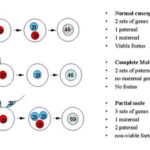
What are sperm cramps? Could you please explain?
Sperm cramps can be a confusing and sometimes concerning topic for many. It’s common for people to have questions about whether they’re experiencing symptoms related to sperm cramps, what exactly they are, and how they might differ from other types of cramps, such as period cramps.
In this article, we’ll dive into the meaning of sperm cramps, explore possible causes, and clarify common misconceptions. We’ll also look at how sperm-related activity can interact with menstrual cramps and answer some frequently asked questions.
What Is Sperm Cramps?
Sperm cramps refer to the sensation of cramping or discomfort that some men report feeling in the lower abdomen, pelvic region, or testicles, usually after ejaculation. Despite the term “sperm cramps,” this discomfort is not directly caused by sperm itself. Instead, the sensation can be due to muscular contractions or pelvic strain that happens in the body after sexual activity or ejaculation. Understanding the meaning of sperm cramps is crucial for knowing what might be causing the discomfort and how to manage it.
Where Do They Hurt?
Sperm cramps, as experienced by men, generally refer to a dull ache or sharp pain in the lower abdominal area, testicles, or the pelvic region. This discomfort can occur just after ejaculation or might last for a while, causing varying degrees of pain. The area where sperm cramps hurt is often similar to the location of period cramps in women, creating confusion for some. While sperm cramps are not typically linked to severe medical concerns, they can be uncomfortable and cause anxiety.
Why Sperm Cramps Happen?
One of the main reasons sperm cramps happen is due to muscle contractions that occur during ejaculation. The pelvic muscles contract to release semen, and sometimes these contractions can lead to lingering cramps or soreness. Another cause could be prostate-related issues or an overactive pelvic floor. For some, an intense or prolonged sexual activity might lead to cramping due to muscle strain or dehydration.
In certain cases, other conditions like prostatitis (inflammation of the prostate) or epididymitis (inflammation of the epididymis, a tube at the back of the testicle) can also contribute to sperm cramps symptoms. For men experiencing persistent or severe pain, it’s best to consult a healthcare professional.
Sperm Cramps vs. Period Cramps
A common question is whether sperm cramps are the same as period cramps in women. While both types of cramps might occur in the pelvic area, they arise from different causes. Period cramps are related to the menstrual cycle and involve the contraction of the uterine muscles, while sperm cramps are related to the ejaculation process and pelvic muscle contraction in men. Although these cramps might feel similar in location, they are fundamentally different in origin and cause.
Symptoms of Sperm Cramps
Understanding sperm cramps symptoms can help differentiate them from other kinds of pain. Typical symptoms include:
- A dull or sharp ache in the lower abdomen or pelvic area
- Testicular discomfort
- Mild cramping that occurs after ejaculation
- A sensation of muscle strain or fatigue in the pelvic region
For most men, sperm cramps are mild and temporary. However, if the cramps are severe, persistent, or affecting daily life, it might be a good idea to get a medical evaluation to rule out other causes.
Can Sperm Cause Cramps?
While it’s not the sperm itself causing the cramps, ejaculation can lead to muscle contractions, which may result in cramping. The presence of sperm in itself does not cause pain, but the physical processes associated with its release might contribute to discomfort for some men. The term “sperm cramps” simply describes a set of sensations related to post-ejaculatory muscle contractions.
Does Sperm Help with Menstrual Cramps?
Some studies and anecdotal evidence suggest that semen exposure might have positive effects on menstrual pain for some women. Certain hormones in semen, like prostaglandins, might influence uterine contractions, potentially reducing menstrual cramps for some. However, scientific evidence on this is limited, and the effects vary widely among individuals.
Does Cramping Occur After Fertilization?
When sperm meets the egg, some women might experience mild cramping, which is known as implantation cramping. This cramping typically happens as the fertilized egg implants itself into the uterine lining. The cramps can feel similar to menstrual cramps but are generally milder and occur earlier in the menstrual cycle than expected.
Can sperm build-up cause pain?
Yes, for some men, prolonged sperm build-up can lead to discomfort or a feeling of fullness, especially in the lower abdomen or testicles. This is sometimes called “blue balls,” where the testicles may feel achy due to prolonged arousal without ejaculation. It’s not harmful and usually goes away with either ejaculation or by simply allowing time to pass.
Does a man feel pain when ejaculating?
Normally, ejaculation shouldn’t be painful, but some men might experience discomfort or even pain. This can be caused by factors like pelvic muscle tension, dehydration, or conditions like prostatitis or epididymitis (inflammation of the prostate or epididymis). If pain during ejaculation happens regularly, it’s best to check in with a healthcare provider, as it could indicate an underlying condition that needs attention.
Why do my knees hurt after ejaculating?
This may sound unusual, but some men report feeling aches in their knees after ejaculation. The connection isn’t fully understood, but it could be related to muscular strain or tension, as well as the body’s natural release of certain hormones post-ejaculation. If the discomfort is bothersome or persistent, it might be worth discussing with a doctor to rule out any unrelated knee issues.
Does ejaculating multiple times reduce sperm count?
Ejaculating multiple times in a short period does temporarily reduce the amount of sperm in each ejaculation, simply because the body needs time to produce more. However, this is only a short-term effect. Your sperm count will naturally replenish over the next few hours or days, so there’s no permanent impact on fertility.
Does masturbation decrease sperm count?
Masturbation doesn’t decrease your long-term sperm count. While ejaculating frequently can lower the amount of sperm in each release if done multiple times in one day, your body continuously produces sperm. For most men, this means that daily or frequent ejaculation doesn’t impact overall fertility or long-term sperm count
Practical Tips for Managing Sperm Cramps
While sperm cramps are usually mild, they can sometimes be bothersome. Here are some practical steps to manage or reduce discomfort:
- Stay Hydrated: Dehydration can lead to muscle cramps and exacerbate pelvic discomfort.
- Warm Compresses: Applying a warm compress or taking a warm bath can help relax pelvic muscles and ease cramping.
- Avoid Overexertion: Avoid intense physical activity before and after sex, as muscle fatigue can increase the risk of cramps.
- Stretching and Relaxation: Gentle stretching, especially in the pelvic area, can help release muscle tension.
- Consult a Doctor: If the pain is severe or recurrent, it’s essential to seek medical advice to rule out underlying conditions.
Understanding Sperm Cramps Meaning in Hindi
For readers who may be seeking information on sperm cramps in Hindi, “sperm cramps” in Hindi would be described as “वीर्य ऐंठन” (Veerya Ainṭhan). However, it’s important to understand that the term isn’t widely used in medical contexts and may not have a direct translation in all languages. If you experience discomfort or pain in the pelvic region after ejaculation, it’s best to consult a healthcare provider to discuss your symptoms.
FAQs about Sperm Cramps
Can sperm cramps be a sign of a medical condition?
While mild, occasional sperm cramps are generally not a concern, frequent or severe cramps could indicate conditions such as prostatitis or issues with the pelvic floor. If discomfort persists, it’s best to consult a healthcare provider.
How long do sperm cramps typically last?
Sperm cramps usually last a few minutes to a couple of hours. For most men, the discomfort is short-lived. However, if the cramps persist beyond this, it may be worth seeking medical advice.
Are sperm cramps more common in certain age groups?
Sperm cramps can occur at any age but might be more noticeable in men who experience frequent ejaculation or have prostate-related health issues, which can be more common in older age groups.
Can lifestyle factors, like diet or exercise, influence sperm cramps?
Yes, certain lifestyle factors like dehydration, lack of exercise, or even high-stress levels can contribute to muscle cramps in general, including sperm cramps. Staying hydrated, eating a balanced diet, and exercising regularly can help reduce cramping.
Can sperm cramps affect fertility or sexual health?
Sperm cramps themselves do not impact fertility or sexual health. However, if there is persistent discomfort, it may indicate an underlying condition that could benefit from medical attention to ensure overall reproductive health.
Soothe Cramps Fast with This Heating Pad

Conclusion
Sperm cramps are typically a mild discomfort that some men experience after ejaculation, usually due to muscle contractions in the pelvic area. Although they can cause concern, these cramps are generally harmless and manageable. Knowing the difference between sperm cramps and other types of cramping, such as menstrual cramps, can help alleviate worries. If you experience persistent or severe pain, consulting a healthcare provider is a wise choice for understanding and managing your symptoms. Overall, being informed about the causes and nature of sperm cramps can provide reassurance and help you feel more in control of your body’s responses.












